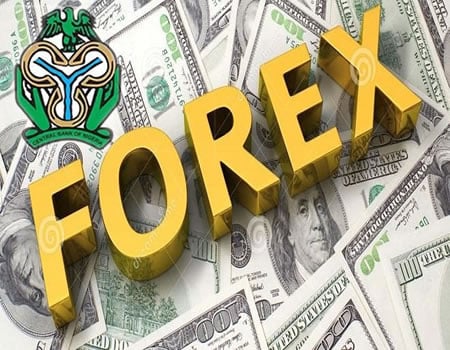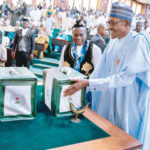According to him, over the last 12 months, Nigeria’s forex reserves grew by over US$10 billion from just over US$23 billion in October 2016 to over US$33 billion in October 2017.
“It is my belief that if we remain resolute with our efforts, policies and actions we can attain an FX reserve position of about US$40 billion by end 2018,” the governor stated at the annual bankers’ night held over the weekend in Lagos.
He believes that as the sentiments improve in the macroeconomy and supported by proactive monetary, trade, industrial and fiscal policies, that will be a continued uptick in Gross Domestic Product growth with a positive spillover to improved unemployment rate.
“As policies to strengthen the agricultural and industrial sectors become more emergent, growth in these sectors will rise, further bolstering overall economy,” Emefiele added.
On inflation, the governor stated that inflationary pressure will continue to ease, stressing that it may return to very low double digit or high single digit levels during the next year.
Though the base effect had diminished, he added, “I expect that as the socio-economic factors that are driving food inflation are resolved the inertia therein would dissipate and the pace of headline disinflation will grow.
Meanwhile, analysts from FBNQuest, the investment arm of FBN holdings in a recent assessment titled: “Good morning Nigeria,” said such level of reserves would have a lot of positive implications for the economy.
The CBN, they said, will be boosted by the positive signals from the investors’ and exporters’ forex window (NAFEX), adding that turnover (that is, both sides of trades) from its launch in late April through to November 3 totalled $18.9billion.
The reserves, the analysts said, will this month hit $35 billion, the highest in three years. The last time the nation had $35 billion external reserve was end of November 2014, when it dropped to $35.24 billion from $36.25 billion at end of October 2014.
Indications to this emerged from the CBN data which showed that external reserves rose by $1.37 billion in October to $33.86 billion from $32.49 billion in September. The increase recorded in October was over 100 per cent higher than the $660 million increase recorded in September.
This was occasioned by increased inflow from foreign exchange earnings from crude oil following sustained increase in the price of crude oil. From a low of $46.39 per barrel in February, price of Nigeria’s Bonny Light crude oil, rose to $59.11 per barrel penultimate week, according to data on CBN website.
To FBNQuest, the latest boost has also been provided by the return of the offshore investors to local debt markets. “We understand that the CBN’s forex supply to NAFEX is now negligible and we know that it has reduced its supply to other windows such as that for the retail segment for invisibles.
“These various positive developments tell us that gross reserves are heading towards the US$40billion mark, which level they last touched in February 2014,” the firm stated.






